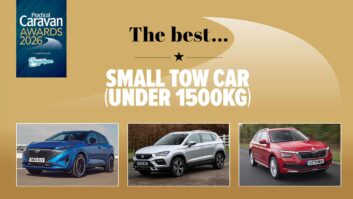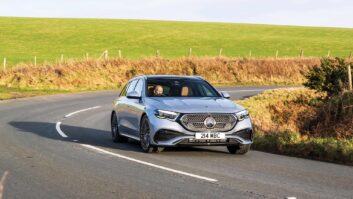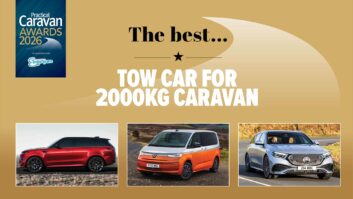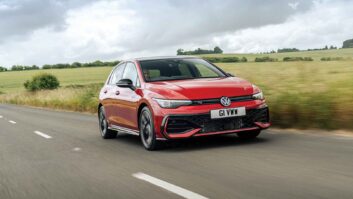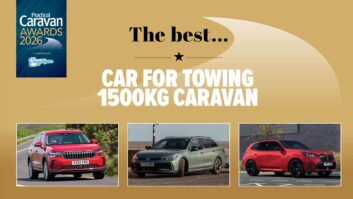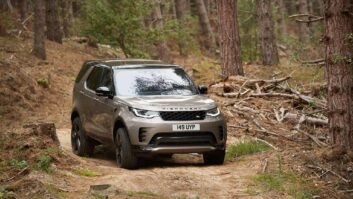Big 4x4s are all well and good, but their large size is almost always matched by the substantial price tag and hefty running costs.
Added to that is the fact that many of us don’t actually need a large vehicle when we’re looking for the best caravan tow cars.
There are plenty of lightweight tourers and small caravans that can be towed by smaller, more affordable, more economical cars.
Combining a lighter vehicle and caravan can make financial sense. Both halves of the outfit are likely to be more affordable, and a lighter combination should have lower running costs – just so long as the car’s engine is up to the job.
Smaller, narrower cars and vans are easier to thread along a country lane than a huge SUV for towing pulling a twin-axle would be. What’s more, if you put up an awning once you arrive on site, you’re giving away less living space than you might expect.
Here are five of our favourite lightweight tow cars – but for those who prefer a more luxurious experience on the road, be sure to check out my favourite budget luxury towing cars too.
Lightweight cars for towing – our favourite picks
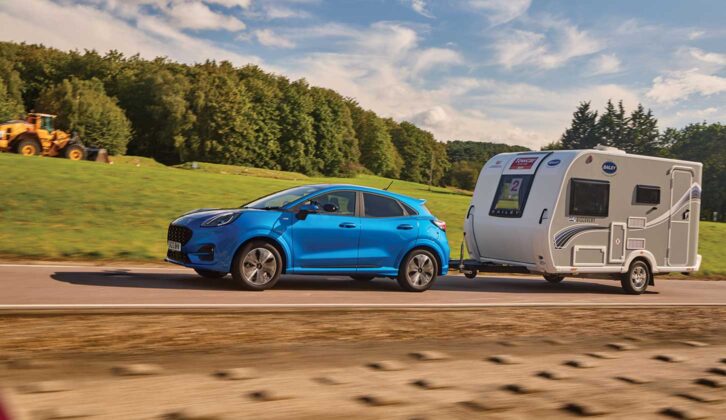
Ford Puma mHEV 155 ST-Line
- Price: £29,250
- Kerbweight: 1280kg
- 85% match: 1088kg
- Max towing weight: 1100kg
You really need a lightweight tourer if you are going to be towing it with the Ford Puma – it’s restricted to pulling no more than 1100kg.
However, if you own a trailer tent or a light caravan, such as a Swift Basecamp 2, the Puma makes a fine choice.
The Ford is a stable tow car, helped by its firm and sporty suspension. The engine might have a capacity of just 1.0 litres, but with mild-hybrid assistance and a turbocharger, it is livelier than the capacity might actually suggest. It copes well enough with a lightweight caravan.
Leave the tourer behind and you’ll discover just why the Puma is so highly rated.
It’s great fun to drive on a twisting country road, thanks to its very precise steering, balanced handling and superbly plentiful grip. The trade-off, though, is a rather firm ride, especially around town.
Inside, the plastics could be better finished and it’s a shame that there are no air vents in the door pillars or between the front seats, to keep rear-seat passengers comfortable.
There’s space for four, but five would be a tight fit.
We’ve seen high-mileage cars from 2020 priced for around £12,000, which is a bargain for such a fun and practical car. See what we think about buying a used Ford Puma too if you’re looking at the pre-owned market instead.
Full review: Ford Puma mHEV 155 ST-Line
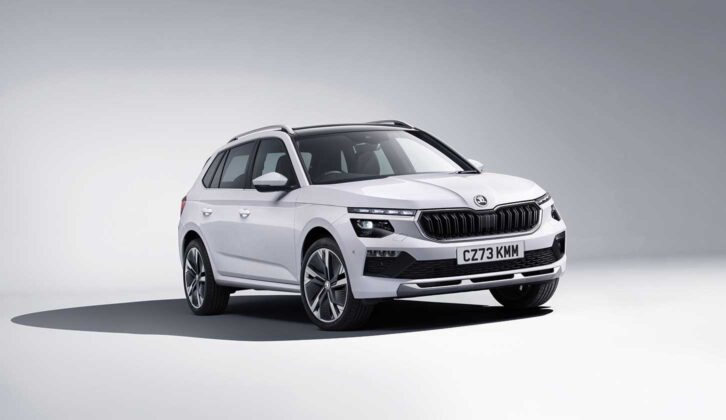
Škoda Kamiq 1.5 TSI 150PS SE L
- Price: £28,565
- Kerbweight: 1291kg
- 85% match: 1097kg
- Towing limit: 1250kg
Small tow cars really don’t come much better than the Škoda Kamiq. For such a light vehicle, (weighing in at less than 1300kg, even allowing 75kg for the driver) the Kamiq is very stable.
There is a little movement around HGVs and coaches, but nothing alarming.
Performance is strong, thanks to the 150hp 1.5-litre petrol engine. The car comfortably tows a lightweight caravan, although you might need to change down from sixth gear
to fifth on a motorway incline or into a headwind.
On country roads, the Kamiq tows with a compelling blend of comfort and control.
The only weakness worth mentioning concerns hill starts, which need plenty of revs and clutch slip to pull away on a 1-in-6 slope. Care might be needed here in wet weather.
In everyday driving, the Kamiq is a very capable all-rounder. It’s not as much fun to drive as a Ford Puma, but it rides more comfortably and is quieter at speed.
Considering how small the Kamiq is, the interior space is surprisingly generous. Even the back seats are adult-friendly, and you won’t need to travel light, thanks to plenty of space for the family’s luggage.
Sensibly priced as a new car, used examples start at around £11,500 for a high-mileage car.
See what we made of the Škoda Kamiq 1.5 TSI 150PS Monte Carlo when we put it to the test.

Dacia Jogger TCe 110 Expression
- Price: £19,595
- Kerbweight: 1336kg*
- 85% match: 1136kg
- Towing limit: 1200kg
Lightweight seven-seaters are rare – the Dacia Jogger is the only one we can think of. It’s a car with no obvious rivals.
It is also very affordable: £20,000 won’t buy much on today’s new car market, but the Jogger in mid-spec Expression trim falls within this price bracket.
The Dacia won’t tow much, with a low kerbweight and a maximum towing weight of 1200kg. But so long as your van is light enough and you are not in a hurry, the 110hp engine is up to the job.
You would think a small seven-seater would be cramped, but there’s enough space for adults, even in the third row. Room for passengers comes at the expense of luggage space – you’ll squeeze in a handful of shopping bags, not a lot else.
The third row can be folded away when not in use, making more room for suitcases.
The Jogger’s biggest weakness is safety, with a one-star rating from the experts at Euro NCAP. It’s the one area where Dacia rather lags behind the more expensive opposition.
A used model should save £2000 or so on the new price – if you’re unsure about the right type for you, don’t miss our guide to buying a new or used car to help you choose the right one.
*Including 75kg for driver not included in Dacia’s published kerbweight

Hyundai Kona Hybrid Advance
- Price: £30,385
- Kerbweight: 1485kg*
- 85% match: 1262kg
- Towing limit: 1300kg
The heaviest of the lightweights on this list, the Hyundai makes the scales groan, thanks to the extra heft of its battery and electric motor. That makes it a suitable match for a wider variety of tourers than the other cars here, even allowing for the modest 1300kg maximum towing figure.
Engine and motor combine for respectable performance, although the engine can be noisy while towing, and not just when accelerating. The automatic gearbox sometimes forces the engine to hold high revs, even at a steady cruise.
Stability is fair enough for a car of this size and weight, with some slight movement around large vehicles.
Anybody familiar with the previous-generation Kona will be impressed with the extra passenger space to be found inside the new model.
Boot capacity is also much improved. There are 466 litres with the back seats upright.
In normal driving, the Kona is thoroughly competent, if hard to get excited about. A Ford Puma is more fun on twisting roads, while the Škoda Kamiq smooths over bumpy surfaces to a greater degree.
It’s still early days to expect much of a saving when you’re shopping for a used example, but we’ve seen nearly new models for around £27,000.
*Includes 75kg for driver not included in Hyundai’s published kerbweight

Volkswagen T-Cross 1.0 TSI 115PS Match DSG
- Price: £26,655
- Kerbweight: 1296kg
- 85% match: Above max tow
- Towing limit: 1100kg
The T-Cross is a close relative of the Škoda Kamiq and the Seat Arona, and like those, it’s an able lightweight tow car.
Here, we’ve gone with the 1.0-litre engine for the sake of variety and to keep the price down, but if you want more pulling power, you can opt for the 1.5-litre petrol.
Don’t dismiss the 115hp 1.0-litre engine, though. It punches above its small capacity, and the engine is up to the task of towing a sensibly matched caravan.
With a towing limit of 1100kg, you will need to choose a very light tourer.
It may take a little patience to tow up to 60mph (the top of the speed limits when towing a caravan), but once there, the T-Cross is composed. There’s some movement around HGVs or in crosswinds, but that comes with the territory if you tow with a very light car.
Inside, it’s a shame the car isn’t better finished – there are too many hard plastics. But the VW is practical for its size.
If you’re looking for a used T-Cross with this engine and gearbox, prices start from just under £15,000. That will buy you a 2019 or 2020 car with some 40,000 miles on the clock.
After choosing your car it will be time to set off for your first tour – take a look at our 10 things every caravanner should know about towing to help you prepare.
If you’ve enjoyed reading this article, why not get the latest news, reviews and features delivered direct to your door or inbox every month. Take advantage of our brilliant Practical Caravan magazine SUBSCRIBERS’ OFFER and SIGN UP TO OUR NEWSLETTER for regular weekly updates on all things caravan related.








